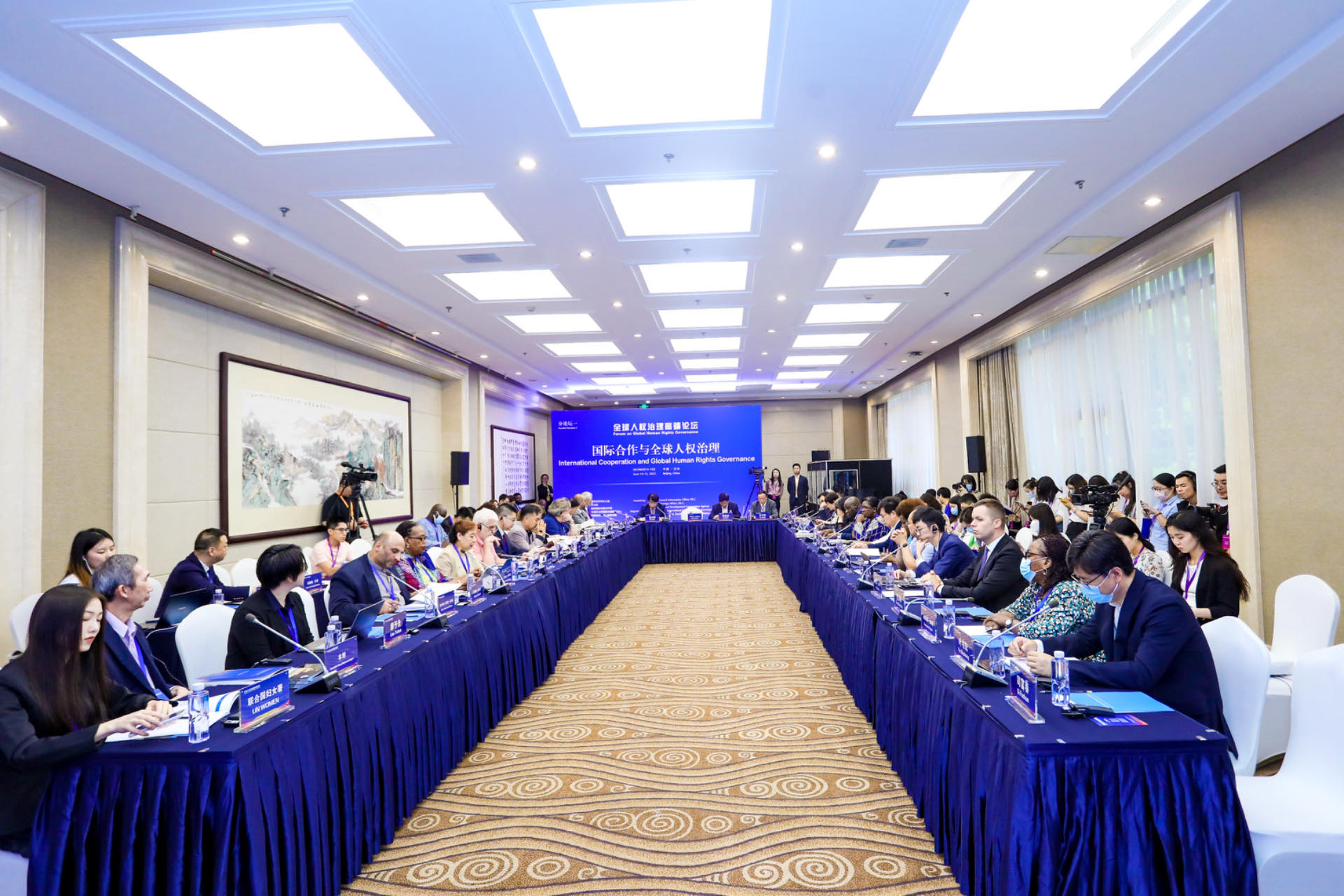Int'l Cooperation for Better Human Rights Governance

A parallel session under the Forum on Global Human Rights Governance held on June 15 in Beijing. (PHOTO: Organizing Committee of the Forum)
By CHEN Chunyou
This year marks the 30th anniversary of the Adoption of the Vienna Declaration and Programme of Action and Global Human Rights Governance, which was adopted at the World Conference on Human Rights in Vienna, recognizing human rights as universal, indivisible and interdependent.
The Forum on Global Human Rights Governance held in Beijing on June 14-15 reaffirmed the spirit of the declaration with more than 300 participants from nearly 100 countries and international organizations sharing their insights.
Boonthan T. Verawongse, adviser to the National Human Rights Commission of Thailand, said global human rights governance needs mutual consultation and learning among all countries. Different countries have different approaches to ensuring human rights in all dimensions. Only by strengthening communication and dialogue can countries understand each other's choices and develop cooperative relations based on mutual trust. This will improve global human rights protection.
China has lifted about 800 million people out of poverty over the past 40 years. Zhang Weiwei, dean of the Institute of Chinese Studies at Fudan University in Shanghai, said China's taking poverty eradication as a core human right is a vivid example of the Chinese way of human rights protection. China’s modernization drive is based on people's actual needs, national conditions and cultural traditions.
Issaka Garba Abdou, head of the governance and human rights division of the Department of Political Affairs, Peace and Security, the African Union Commission, said he was impressed by China regarding the rights to subsistence and development as primary and basic human rights. Only when an individual's survival and development needs are met will he become motivated to make creative explorations, leading to the realization of other rights.
Wei Nanzhi, director of the Social and Cultural Department of the American Institute of the Chinese Academy of Social Sciences (CASS), urged the international community to uphold a green development concept and protect the environment while utilizing natural resources. This would reduce the development deficit and ensure sustainable development of human society.
Liu Huawen, deputy director of the Institute of International Law of CASS, talked of the digital divide worldwide. To bridge this divide, exchanges and cooperation on technologies should be strengthened. Developed countries with technological strengths should offer technical assistance to the less developed ones.
While emerging technologies have brought us benefits, we should also be vigilant about their potential risks to human rights, such as privacy disclosure from improper data use, and ethical risks in medical research, said Djordje Dabic, state secretary of the Ministry of State Administration and Local Self-government of Serbia. Dabic said these challenges can be resolved only through active dialogue and cooperation among nations.


